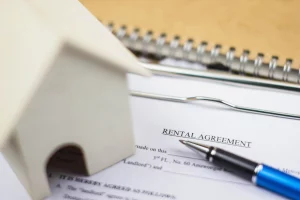
The Benefits of Having a Tenant Lawyer on Your Side…

A typical landlord-tenant conflict is landlords’ rights to enter rental property vs. tenant privacy rights. To avoid problems, it is essential to have fair (and legal) policies that describe the conditions (such as doing repairs) under which the landlord may legally enter leased premises.
Tenants have the right to privacy in their rental unit, which is safeguarded by landlord-tenant law. This right applies to all rental premises, such as decks, balconies, yards, and garages, which are included in the rental agreement.
Many states have adopted laws governing when and how landlords may access rental property lawfully. Other states may not have tenant privacy laws explicitly protecting tenant privacy rights, but their appellate courts may have ruled in favor of tenants’ privacy rights.
The first step in settling a dispute is to see whether the lease provides any details about the issue. A landlord-tenant attorney in San Francisco, CA, can review the lease agreement and see whether the problem is quickly resolved.
Call us now to schedule an appointment for our attorney to review your lease. Experienced legal advice in the San Francisco area can help you find a solution and advise you on other real estate concerns.
Even in the absence of legislation, landlords in all states may enter a rental property without providing notice to deal with a real emergency (an urgent and significant danger to health, safety, or property) or when the tenant has abandoned the property. Likewise, when and how landlords may access rental property in non-emergency situations is addressed under California law.
According to California law, a landlord may enter the property without prior notice if:
 Under the following circumstances, a landlord may enter a tenants unit with proper written “advance notice”:
Under the following circumstances, a landlord may enter a tenants unit with proper written “advance notice”:
California state law has not defined “advance notice.” Nonetheless, the law requires “reasonable” advance notice. Thus, most legal experts agree that 24 hours is reasonable notice.
In addition, California legal professionals believe that the first move-out inspection needs at least 48 hours of advance notice.
The written Notice of Entry must include the day and time the landlord (or representatives) intends to enter the premises, as well as the purpose of the entry (California Civil Code 1954(d)).
The “abuse” of your right to entry is prohibited under California law. Harassment or urging your tenant to leave before the lease contract ends are examples of “abuse.”
When you send someone over to your property two or three times a day for reasons that aren’t true is harassment, even if you have given your tenant early written notice.
Too many phone calls requesting permission to enter are also deemed harassment.
Abuse also involves entering the property without proper notice, cause, or permission.
If you believe you need to access the property, consult with your tenant first.
Abusive actions may result in a lawsuit against you for illegal entry, which is punishable by a civil penalty of up to $2,000 per offense. In addition, your tenant may claim psychological distress to get more money.
Furthermore, accessing your tenant’s premises without permission or legitimate cause is considered criminal trespass, which may result in arrest.
To defend yourself against an abuse allegation, you must have reasonable proof that your tenant abandoned the rental property you relied upon before entering.
When and how a landlord may terminate a tenancy are governed by state law. For example, a California landlord may issue an unconditional quit notice to a tenant who has been assigning or subletting without authorization, giving the tenant three days to vacate the premises before the landlord can file for eviction.
The landlord must give the tenant a three-day notice to pay rent or quit (move) before they may file an eviction case in California if the tenant fails to pay the rent on time. If the tenant does not pay the rent or vacate the premises within three days, the landlord can file a lawsuit.
For example, suppose a tenant in California violates a lease provision by keeping an animal that is not allowed in violation of a no-pets policy. The landlord must give the renter three days’ notice to fix the problem or vacate the rental unit. If the tenant does not correct the problem or vacate the premises within three days, the landlord can file a lawsuit against them.
When tenants sublease the rental unit without permission, create a nuisance, or participate in illegal activity at the rental unit, landlords in California may issue a three-day unconditional quit notice, meaning that the tenant does not have the option to rectify the situation.
Landlords need to understand and stand up for their rights when dealing with tenants. Our goal is to help landlords in San Francisco who are dealing with unruly and troublesome renters. As a landlord, you can count on our competent San Francisco landlord attorneys at Steven Adair MacDonald & Partners, P.C., to fight for your rights and interests.
We can also assist you with legal difficulties about renting out your property to a tenant, lease agreements, evictions, property maintenance, and other real estate-related concerns.
Our legal services are of the highest quality. Please make an appointment with us right away to discuss your needs!
There are two sides to every story —
let yours be heard.
Steven Adair MacDonald & Partners, PC
870 Market Street
Suite 500
San Francisco, California 94102
United States
(415) 956-8698
Copyright © 2024 Steven Adair MacDonald & Partners, PC - All Rights Reserved. | Powered by Advantage Attorney Marketing & Cloud Solutions